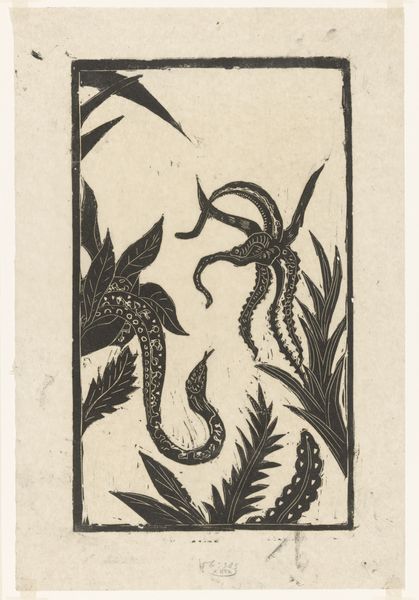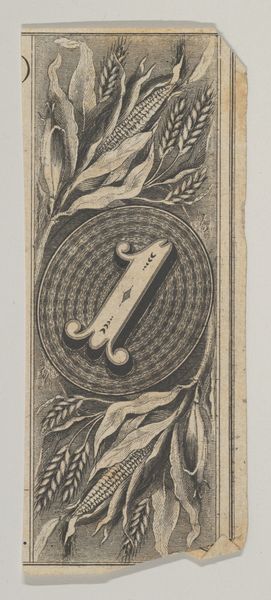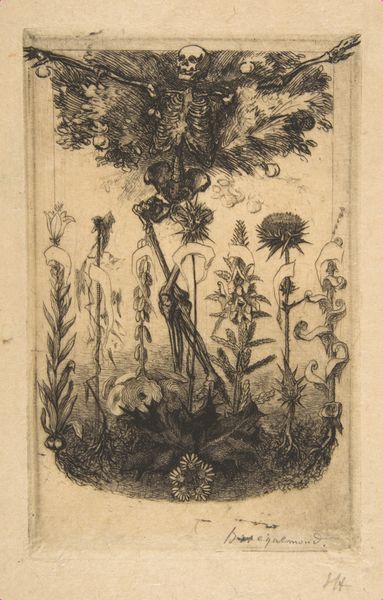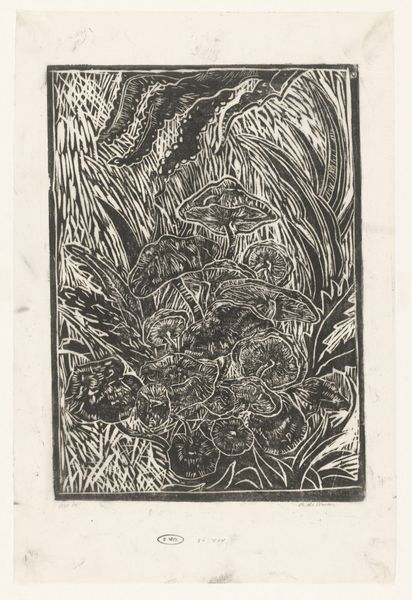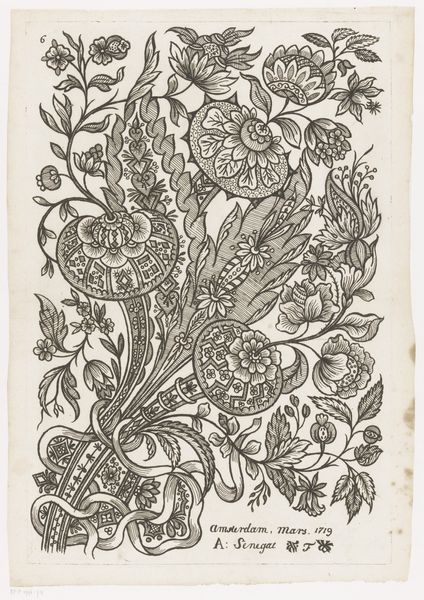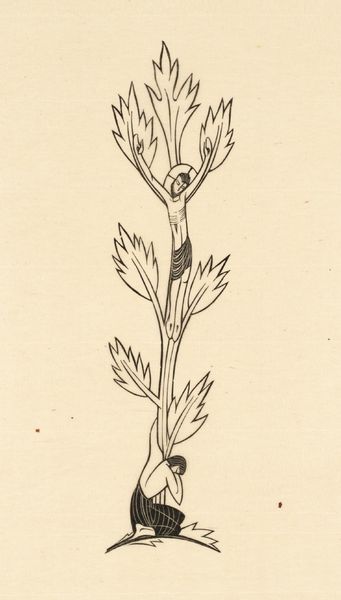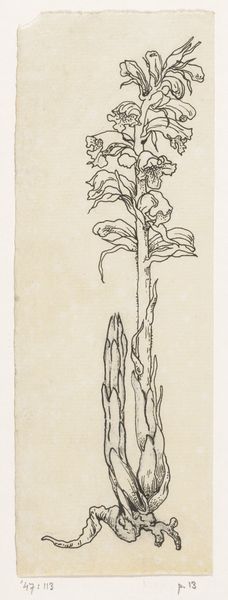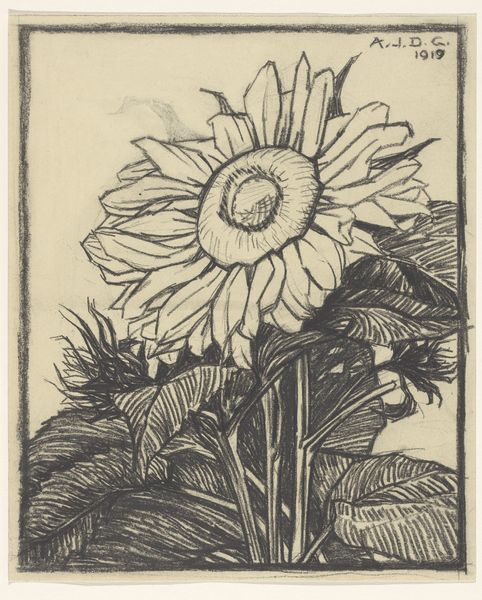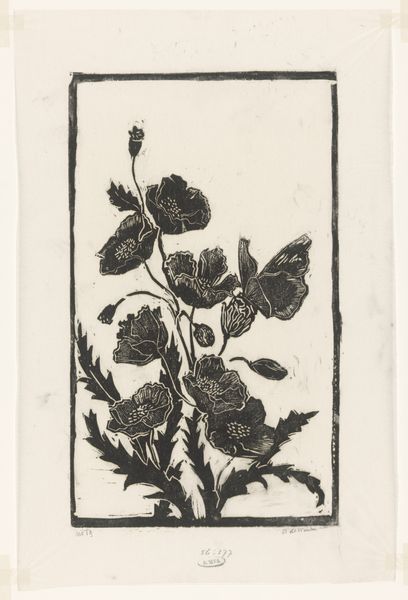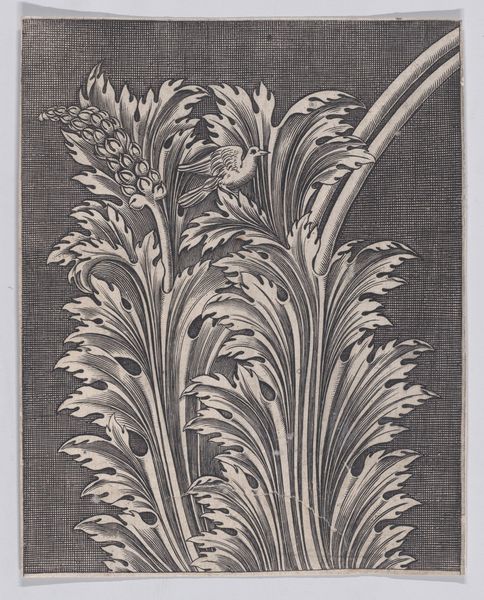
drawing, graphic-art, print, ink, woodcut
#
drawing
#
graphic-art
#
art-nouveau
#
pen drawing
# print
#
ink line art
#
ink
#
woodcut
#
line
Dimensions: height 251 mm, width 171 mm
Copyright: Rijks Museum: Open Domain
Editor: This is "Varens," created in 1920 by Julie de Graag. It's a drawing, and the museum also classifies it as graphic art. The strong lines and repeating shapes create a mesmerizing, almost hypnotic effect for me. How do you interpret this work? Curator: This piece emerges from a fascinating intersection of art nouveau aesthetics and early 20th-century anxieties surrounding industrialization and nature. Think about the rise of mass production – how does de Graag's stylized, yet carefully hand-crafted, rendering of ferns speak to a desire for connection with the natural world that was increasingly threatened? Editor: So it’s a deliberate move away from industry and towards a simpler, more natural representation? Curator: Precisely! Also, consider the role of art and craft movements at this time. Artists were exploring alternative methods of production, emphasizing individual skill and artistry against the backdrop of the machine age. Where does "Varens" fit within this social and artistic context? Editor: It feels like a quiet rebellion, a way of celebrating the beauty of nature in a way that mass production just couldn’t capture. The stylization almost turns the ferns into symbols, not just representations. Curator: That's an astute observation. Furthermore, during this period the Rijksmuseum, among other institutions, was grappling with how to collect and display contemporary art, and moreover how folk art, crafts, and "high art" distinctions were shifting, being renegotiated. Consider also: how do the display and patronage networks shape an artist's career, such as de Graag? Editor: It gives me a new perspective, I am now looking at the cultural forces, and less about the work in isolation! Curator: Indeed! It enriches our appreciation, understanding that an artist's decisions also echo socio-political issues in time.
Comments
No comments
Be the first to comment and join the conversation on the ultimate creative platform.
